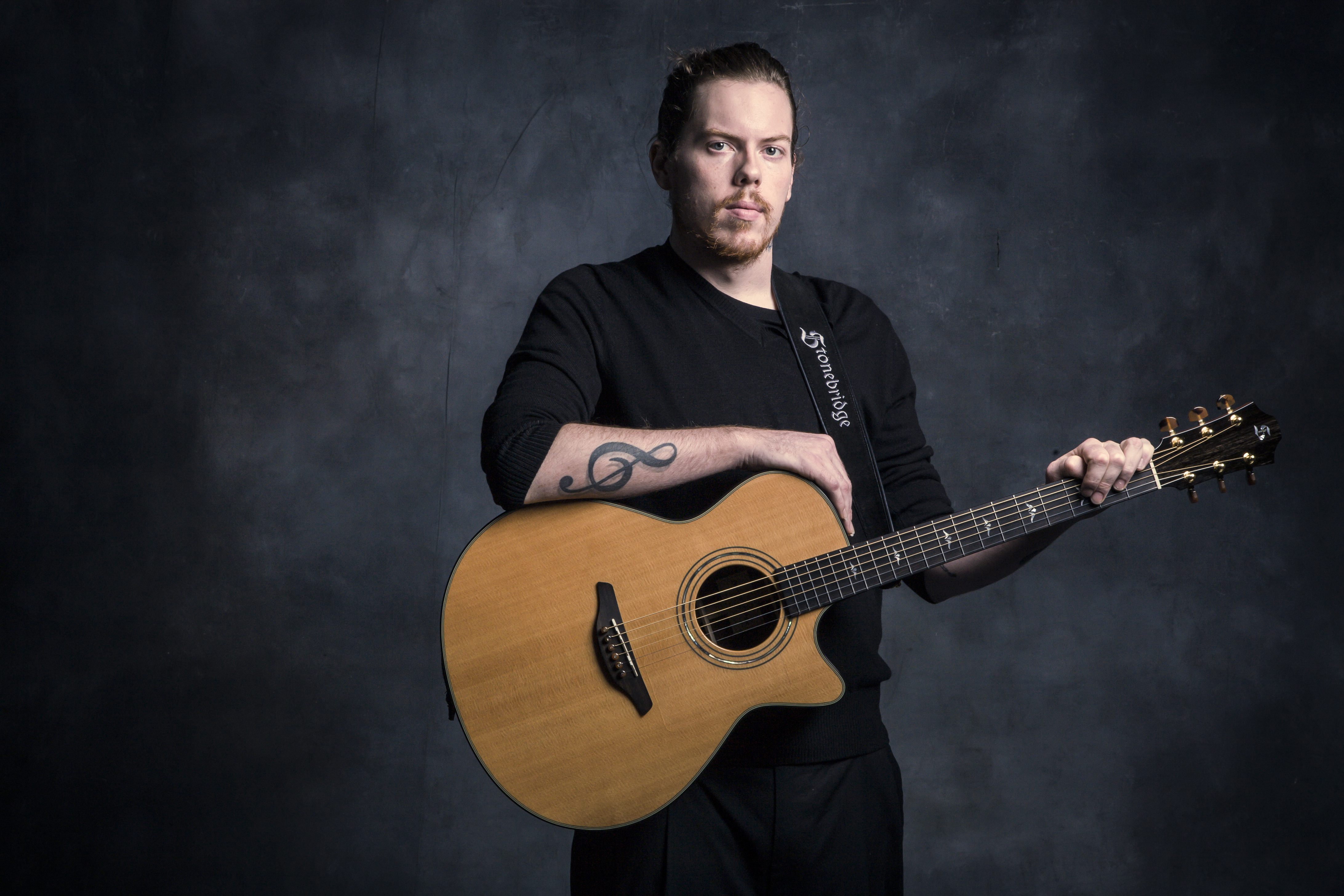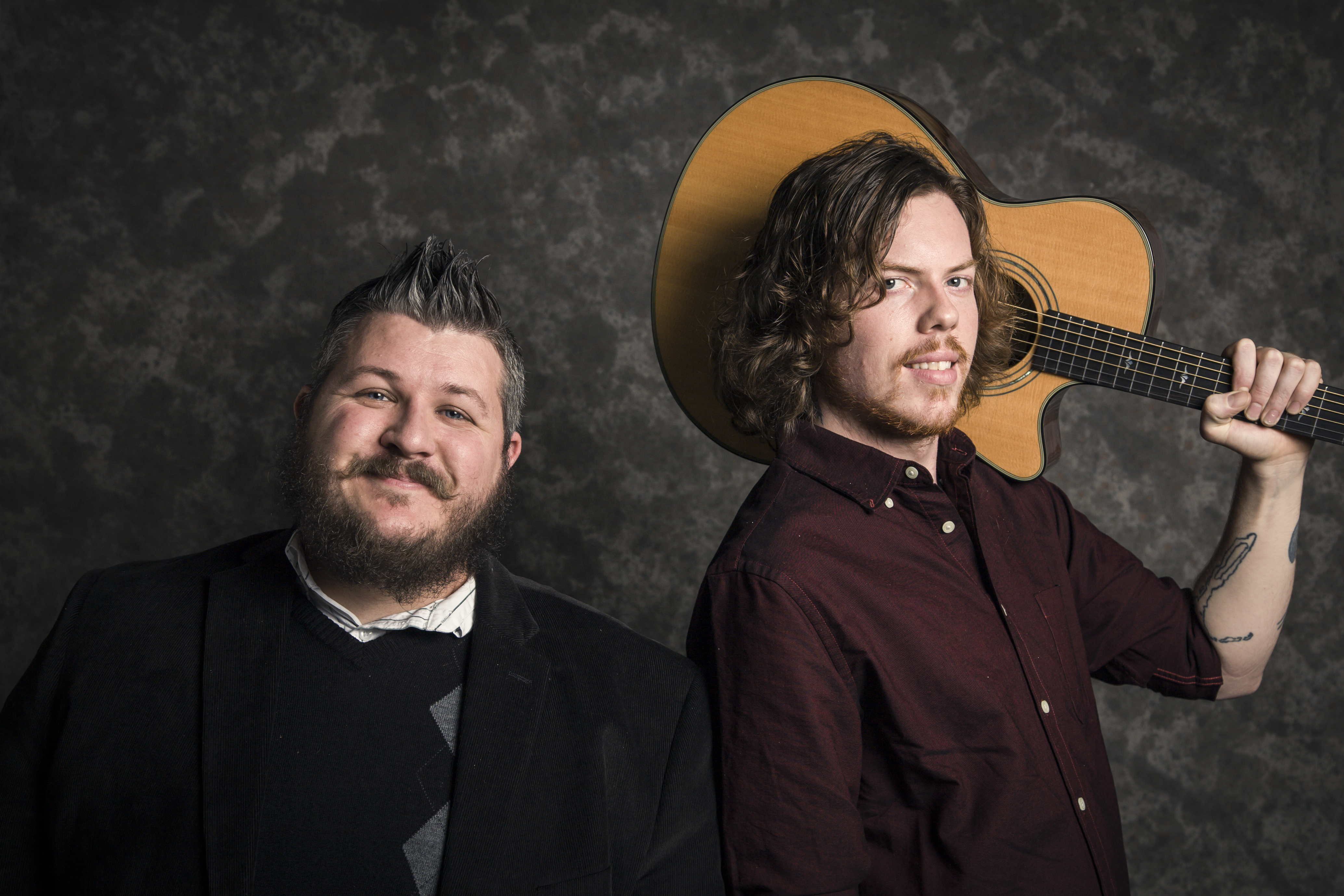Download the album here: iTunes
Buy a physical copy here: adrianbellue.com
I was immediately impressed when I came across Adrian Bellue improvising on YouTube last year. Within minutes, I sent him an email asking him to participate in the Stonebridge Artist Collaboration Program (ACP). This was his response:
“Stonebridge makes incredible instruments. I spent an entire weekend playing Antoine Dufour’s signature model Stonebridge as well as several very expensive high end hand made guitars at the Healdsburg Guitar Festival last year. The Stonebridge I played was exceptional, and played and sounded better then some of the best luthier instruments in the world. I knew after spending the many hours with Antoine’s Stonebridge that this was the guitar company I had been searching for.” -Adrian Bellue
I had the pleasure of interviewing Adrian about the new album and his experience recording with Antoine Dufour.
Luke: Why the album title, Steppes?
Adrian: My latest album, Steppes, is themed around stepping in a new direction of sound and growth. I’ve always been fascinated with nomadism, particularly the people from a place called Tuva, which is located in the Altai region, near the Russian steppes of southern Siberia.
The Tuvan people are known for a unique style of throat singing, or overtone singing. There are many cultures that throat sing, but Tuva has one of the most diverse range of styles that are unique to the Tuvan people.
Luke: The throat singing on the album sounds amazing. You were telling me how you can throat sing two notes at the same time? Please elaborate.
Adrian: Using the partials from a sound wave made by singing, the singer can manipulate the resonances that are created as air travels from the lungs, past the vocal folds, and eventually out of the lips to produce a melody.
Those partials made by the human voice can be selectively amplified by changing the shape of the resonant cavities of the mouth, larynx, and pharynx. This “resonant tuning” makes the singer appear to be creating more then one pitch at the same time, while actually only creating a single fundamental frequency with the vocal chords.
Luke: It sounds ethereal and effectively adds another level to your guitar focused music. What were the highlights of recording with Antoine Dufour?
Adrian: I’ve studied the Tuvan people and practiced throat singing for many years now, and I’ve taught myself a variety of these throat singing techniques. I’ve always wanted to combine my influence from Tuva with my original music, and when I ran into Antoine at the 2015 Winter NAMM show, I asked him if he could help me make my vision come true. Working with him was one of the highlights of my life. Not only is he an incredible musician and a big influence on my own music, Antoine also has a highly developed ear and really knows how to vision a soundscape.
A highlight of recording with Antoine was using his handmade Noble harp guitar for a track. I’d played harp guitars before, but I had never been able to finance a fine handmade one, (until Stonebridge starts making them). I asked Antoine if I could try to improvise a tune with his, and the track “Local Grown” was born in the studio.
The overall sound design for the title track “Steppes” was a lot of fun too. We used a baritone track and layered some harmonies using a cello bow on my standard guitar. Using some studio techniques to get a rich sonic palette to work with, we reconfigured the studio space for vocals and I sang my heart out.

Luke: Beyond recording the album with Antoine Dufour, what were some of the highlights of just hanging out with him during that time?
Adrian: Time spent in his studio working together to create the album was a lot of fun and very little stress. Antoine is just a rad dude, and when we weren’t making the studio magic happen, we were busy talking about life and sharing stories. Antoine has been a huge influence in helping me move forward, and encouraged me to incorporate throat singing with my music when we first met on tour in 2013, with Craig D’Andrea.
After all was said and done, we had a few drinks to celebrate, and Antoine asked me to beatbox and we did a one take beatbox track that we added as a hidden song on the album.
Luke: Antoine Dufour isn’t the only guitarist who has been supportive of your direction. Tell me about your relationship with Andy McKee.
Adrian: Many of my musical influences have been supportive, including Andy McKee. I met Andy some time ago and shared my story with him. After that, I was in Hawaii playing some music when I decided to do a reggae twist on his tune “Ebon Coast”, partially due to all the reggae I heard on the islands. He loved the groove and shared it on social media and got me some momentum in the digital realm. Since then he had me open a handful of shows on his west coast tours, and hires me as a guitar tech at his Musicarium camp in NYC, where I also hosted and emcee’d the open mics he held.
Working with him is a blessing, it’s only a few short years ago I was tinkering around the Internet admiring his playing from afar, and now sharing the stage with him is a dream come true. I always have to stop and give thanks to those that have shown me support on this crazy musical endeavor called life.

Luke: We all need support. I think you’re right that we have to be thankful for our supporters. Now, let’s talk guitars. What Stonebridge guitars did you use on this album?
Adrian: As for the album itself, we used a Stonebridge G23SC-C and a Furch BAR24CR. After you guys found me, I sold my car and bought my first Stonebridge, and had been writing and performing on it exclusively for some time. Eventually, I realized how my vocal range was really in baritone, and I knew the album needed one. Luckily, Stonebridge has my back, and made sure one was ready to go for me in Montreal.
These guitars really made the album, and it was like a kid walking into a candy store when I first entered the studio and saw a new baritone waiting for me. I’ve definitely come to terms that the baritone is my main instrument and my vocal range as a throat singer.
Luke: Thanks for the insightful answers. Is there anything else you’d like to add?
Adrian: Another big thanks goes to my fans and my manager. I couldn’t fund this project alone, and being a relatively young and fresh name in the game, it’s hard to run a crowd funding campaign without a large fanbase. But quality overcame quantity, and 80 fans helped back my project and gave it life. Thanks to some good friends that donated time to make a good campaign video for me, I spent 30 days treating my smartphone like it was my job. I networked and shared my project across the web and we funded the project in just under a month. It was just in time for a big concert I did at a TEDx event, and then I flew out to Montreal the next day and made magic happen!

